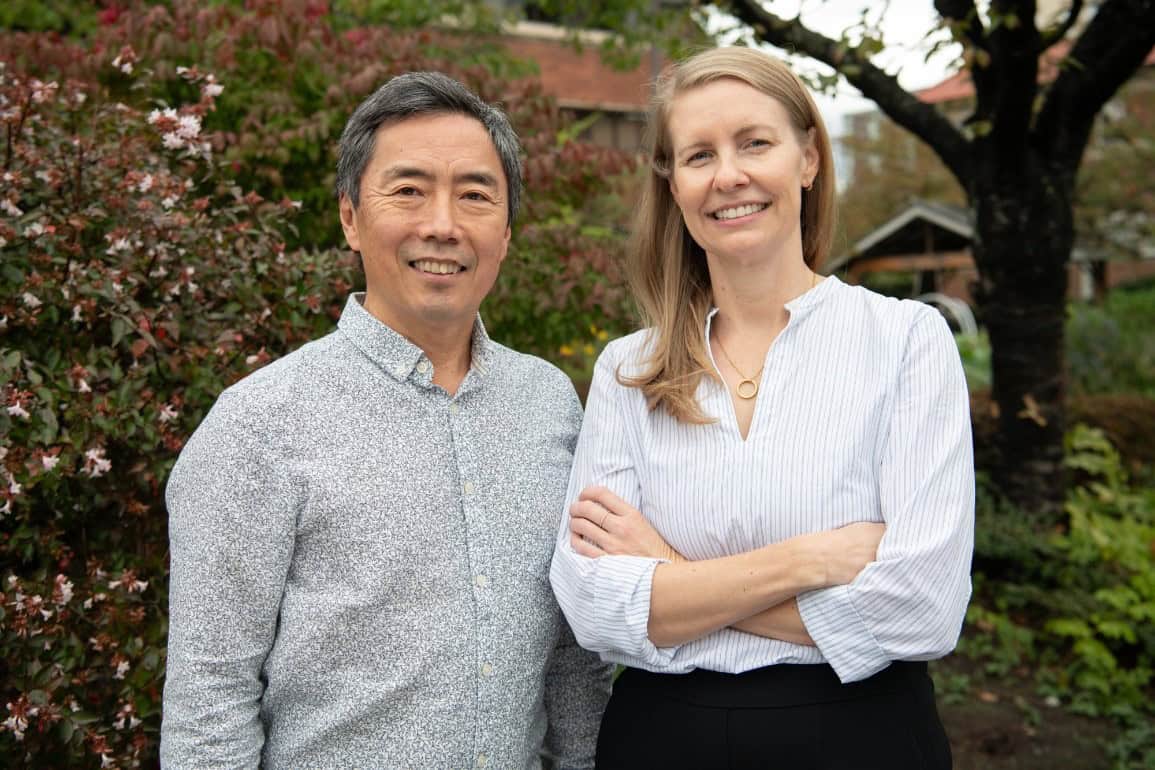“As patients get older and undergo more complex surgery, we must focus on making that surgery as safe as possible so patients can return home and get back to what’s important to them. A huge part of that goal is ensuring that brain function is preserved around surgery.”
Dr. Alana Flexman, chair in perioperative brain health
As we lead longer lives, it’s increasingly common to have major surgery well into our eighties and even nineties. While these surgeries are often successful, older adults are at a higher risk of experiencing a stroke during or immediately after surgery, and these events can have lasting consequences on the brain.
A newly established research chair in perioperative brain health at St. Paul’s Hospital is committed to recognizing and preventing stroke during and after complex surgery.
Strokes can be difficult to spot after surgery. Patients are usually sleepy or groggy from the effects of general anesthesia, and medical teams aren’t always aware of the higher risk with older patients.
Dr. Alana Flexman was recruited for the position and has a background in neuroanesthesia and a deep interest in brain health. Her work on examining the outcomes of surgery patients and their potential risk factors will help to make surgeries safer and assist patients and their families in choosing the best options for intervention and treatment.
The new research position was funded by the physicians at the Anaesthesiology Department, who generously committed to fund the position at St. Paul’s Hospital with support from donors.
Dr. Jim Kim, head of the Anesthesiology Department, says the team’s desire to create this role came from listening to patients and their families. He observed that senior patients would come out of general anaesthetic after surgery and say they felt different – that something was “off.” After returning home patients noticed their cognitive ability had slipped – perhaps they struggled to remember things or had trouble doing daily tasks that were previously not difficult, or felt confused more quickly. Family members may observe these changes as well as their loved one recovered from surgery.
There is still so much to know about the brain and how it responds to aging. “The more we know about how people function after major surgery,” says Dr. Kim, “the better we can treat them.”
For their department, research and patient education are integral to their team. “The constant reminder,” says Dr. Kim, “is that you’re not just an anaesthesiologist but part of a bigger picture. There’s a commitment to fund this.”
Part of Dr. Flexman’s role is educating anesthesiologists and surgeons to identify signs of stroke after surgery. She is also educating health practitioners to consider delaying elective surgeries for high-risk patients, knowing that if a patient had a stroke and are scheduled for surgery, they are at an even higher risk for another stroke.
Dr. Flexman is also looking at treatments to improve delirium in patients at the hospital. Delirium can be a common after-effect of anesthesia for older patients and the effects can be distressing. Patients can get intermittently confused, hallucinated, and paranoid, which can be very upsetting for patients and their families. Delirium is also associated with declined brain function and a higher rate of complications further down the road.
“As patients get older and undergo more complex surgery,” says Dr. Flexman, “we must focus on making that surgery as safe as possible so patients can return home and get back to what’s important to them.”
Research positions are a long-term investment, but they’re critical to advancing our knowledge and best practices in medicine – and ultimately delivering the best care possible for patients.
